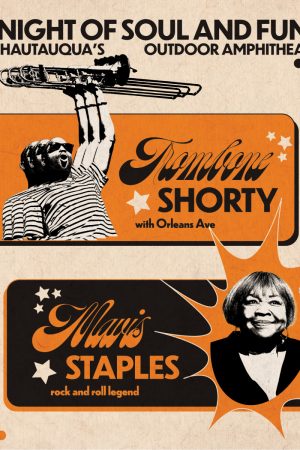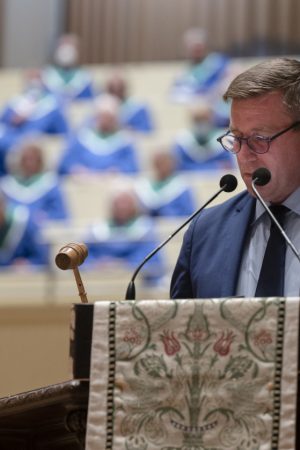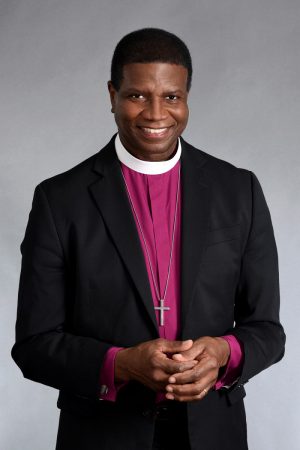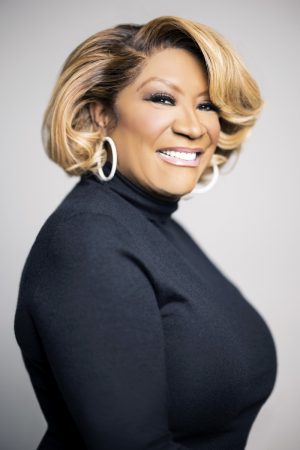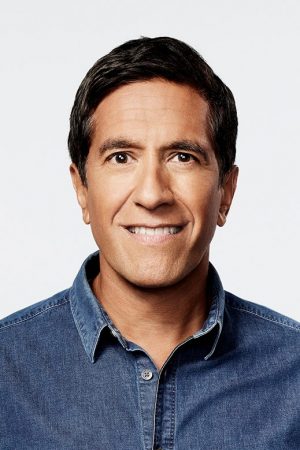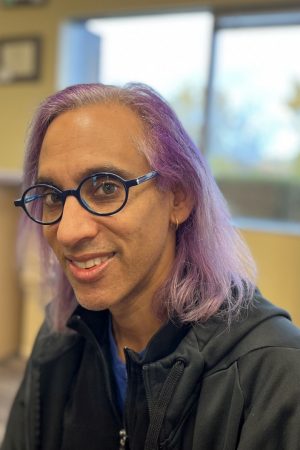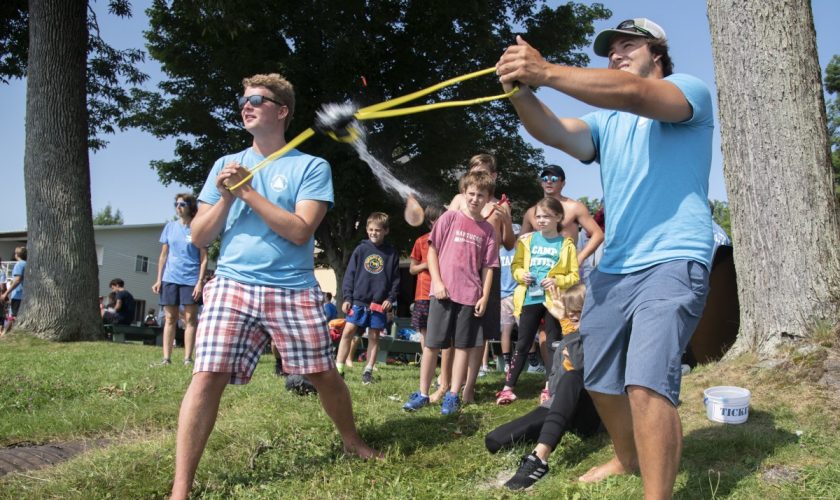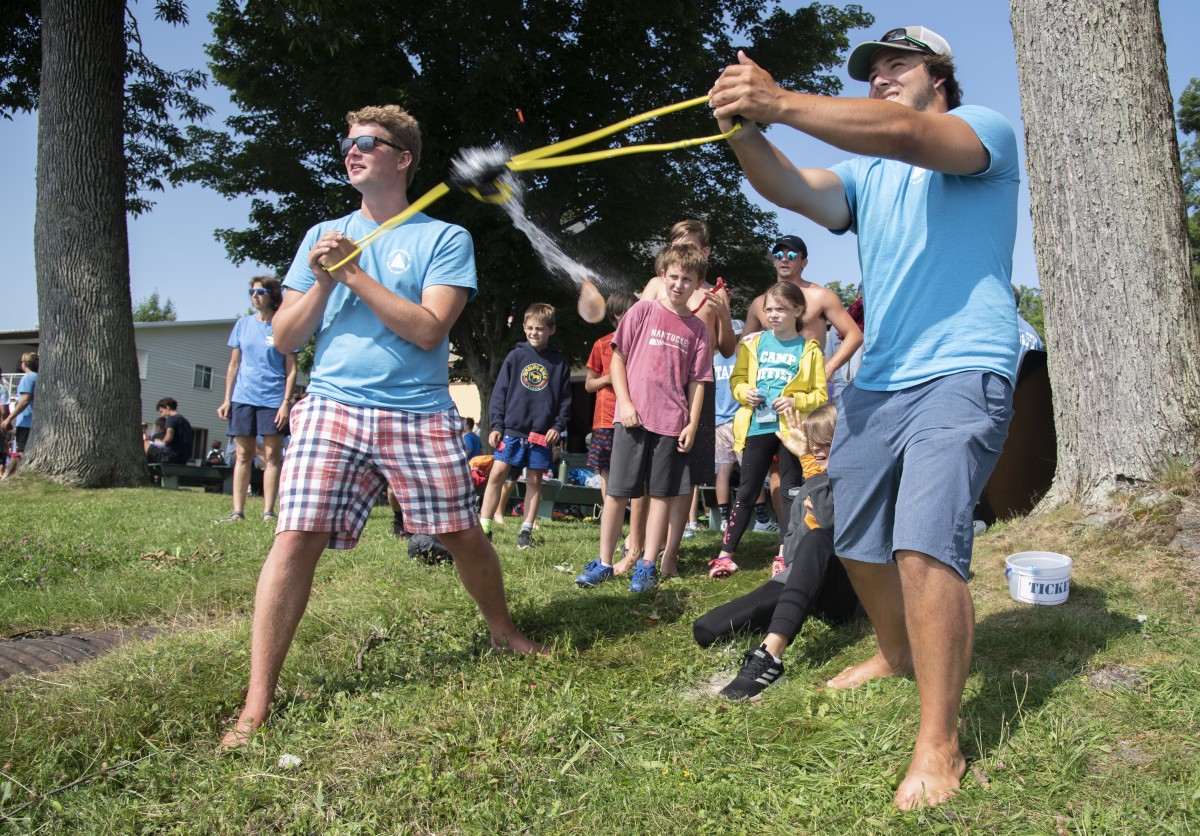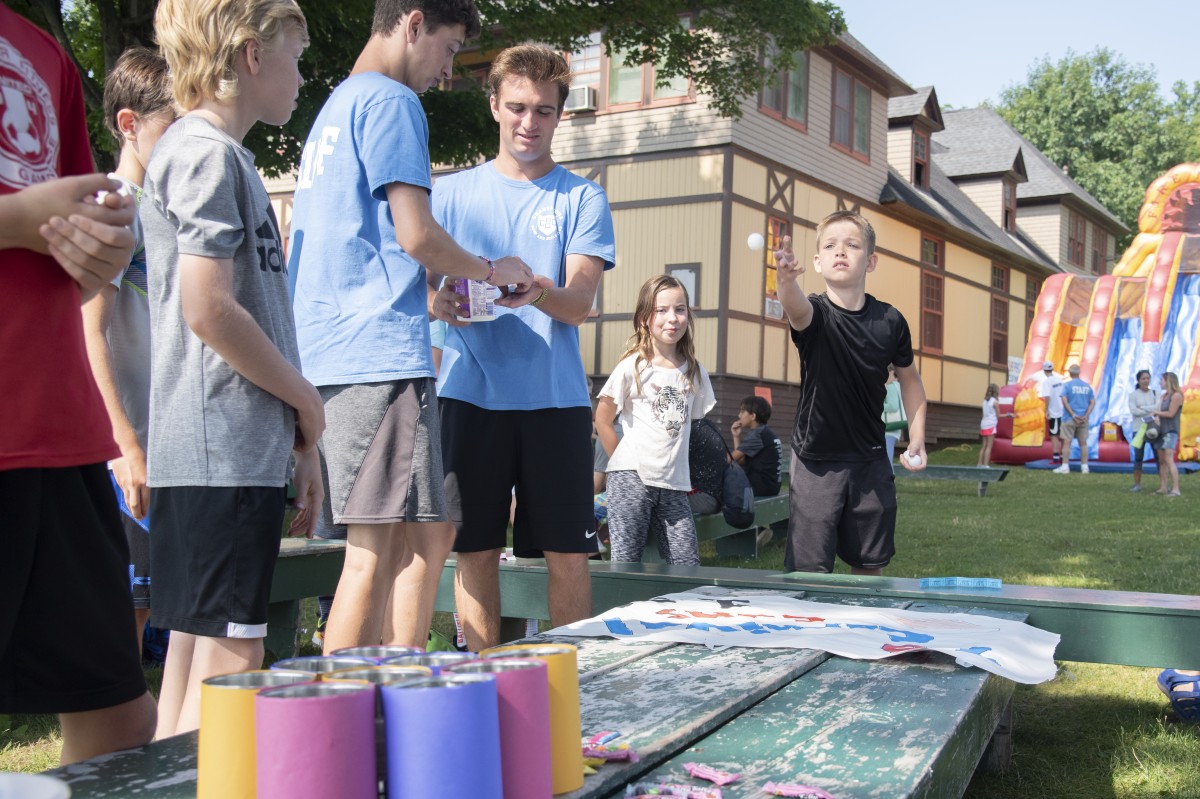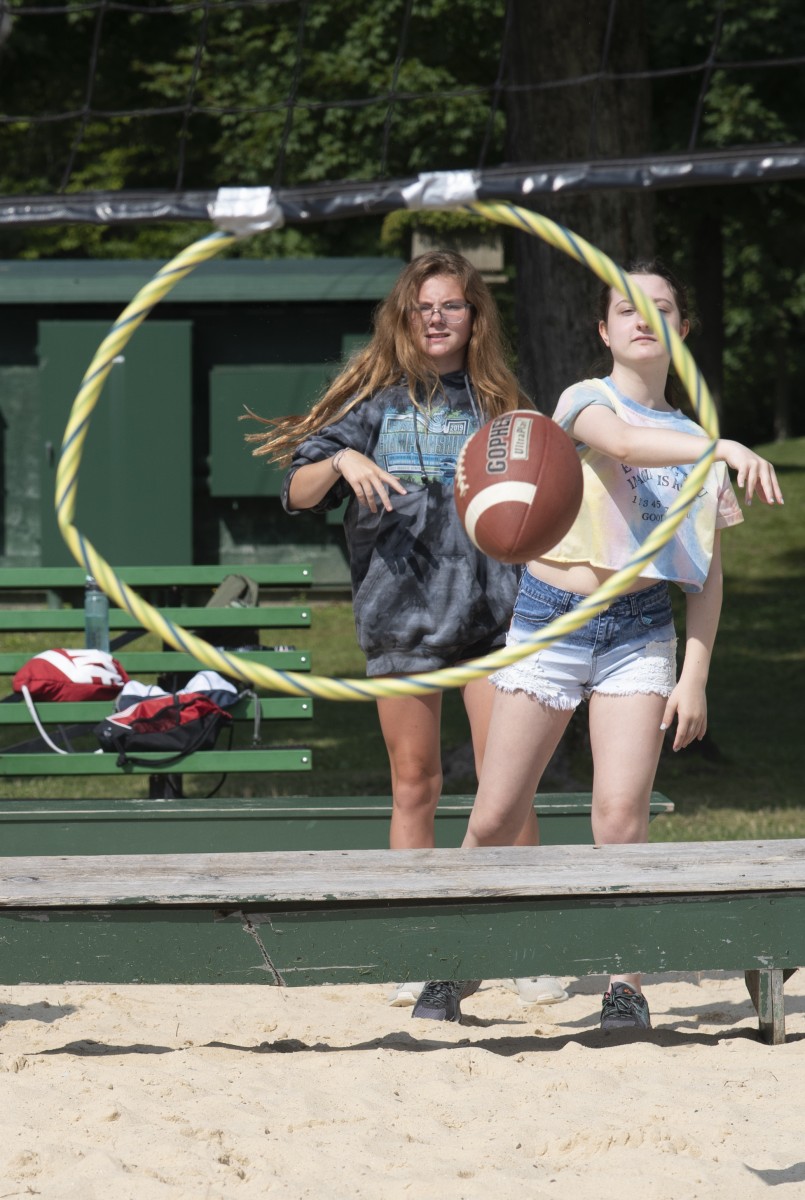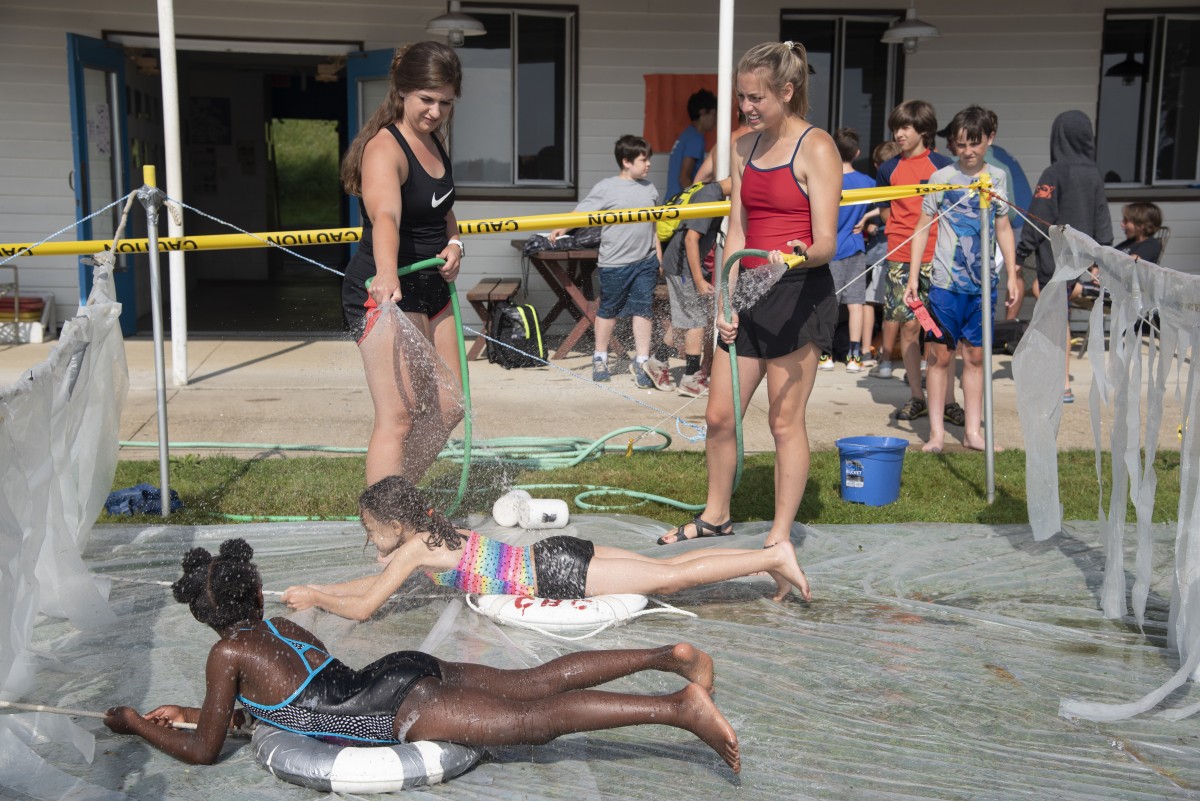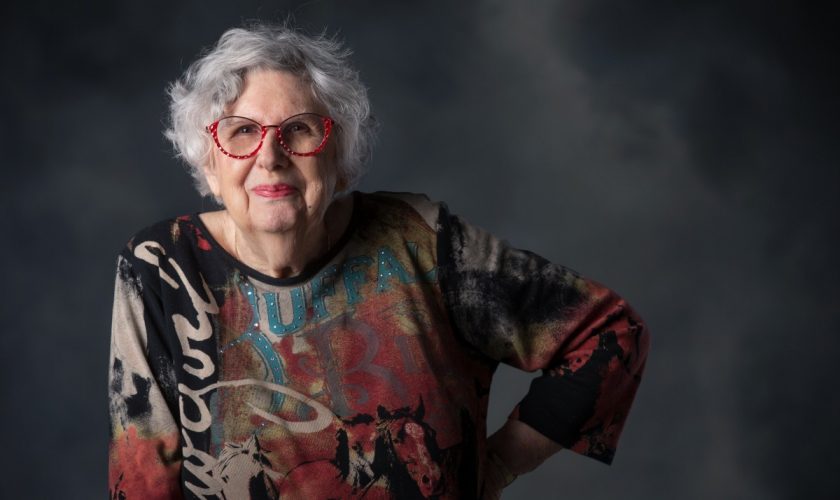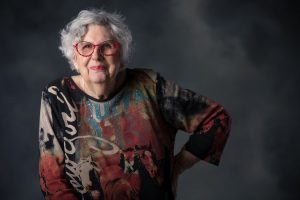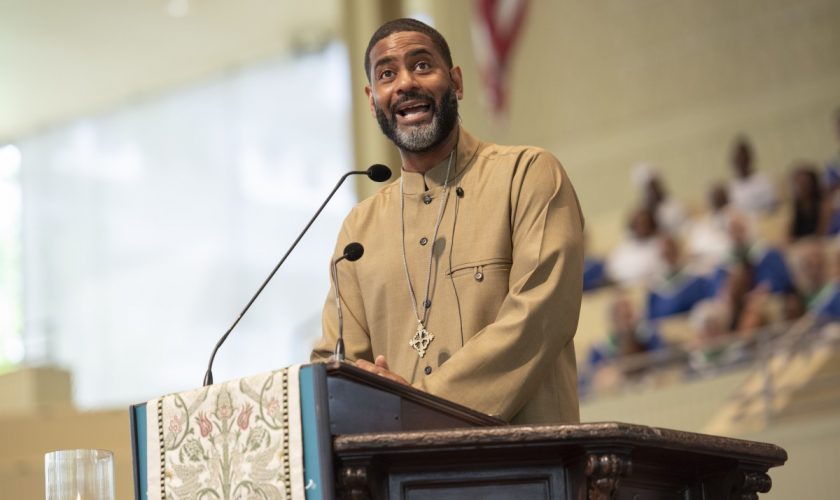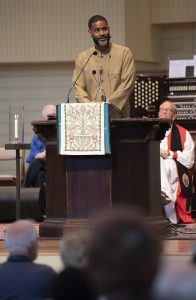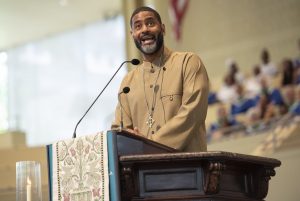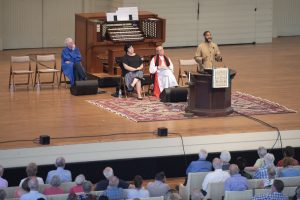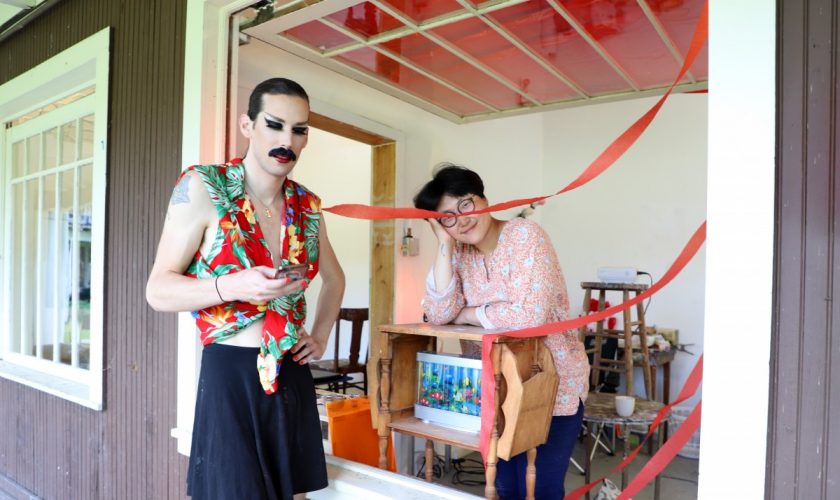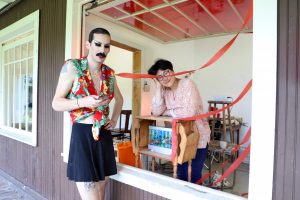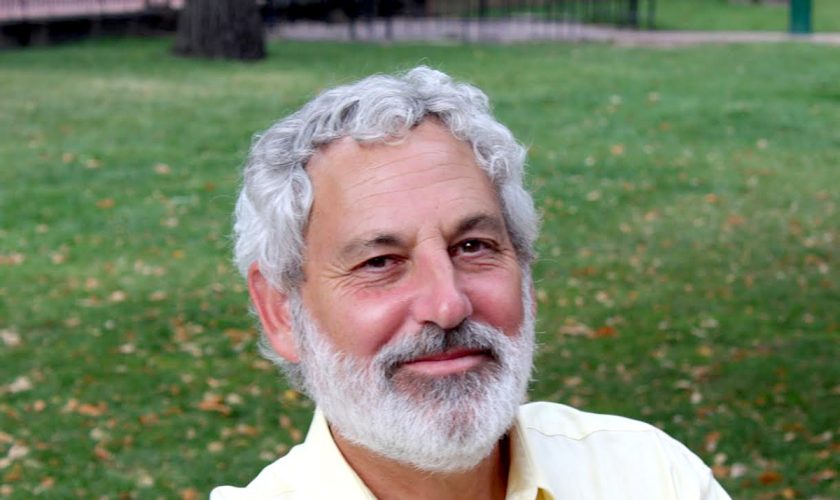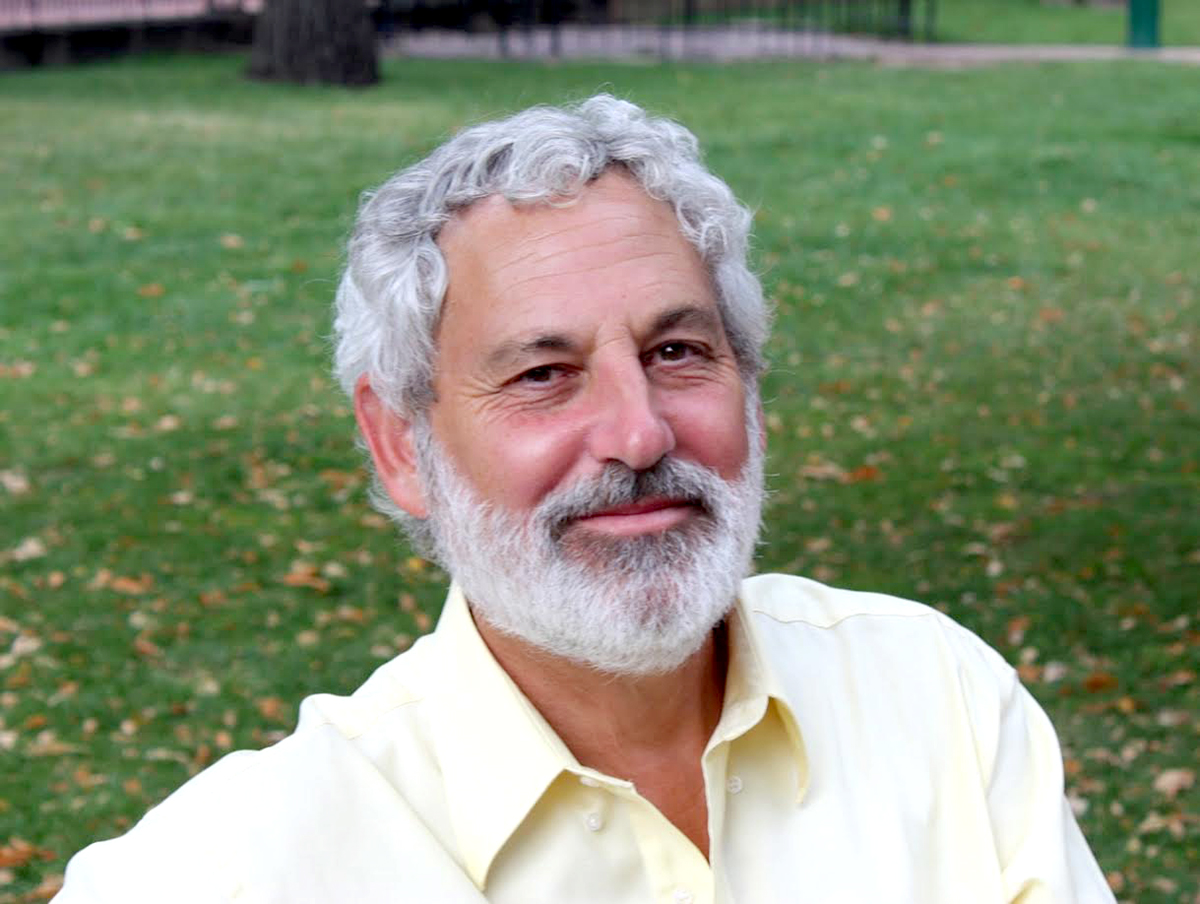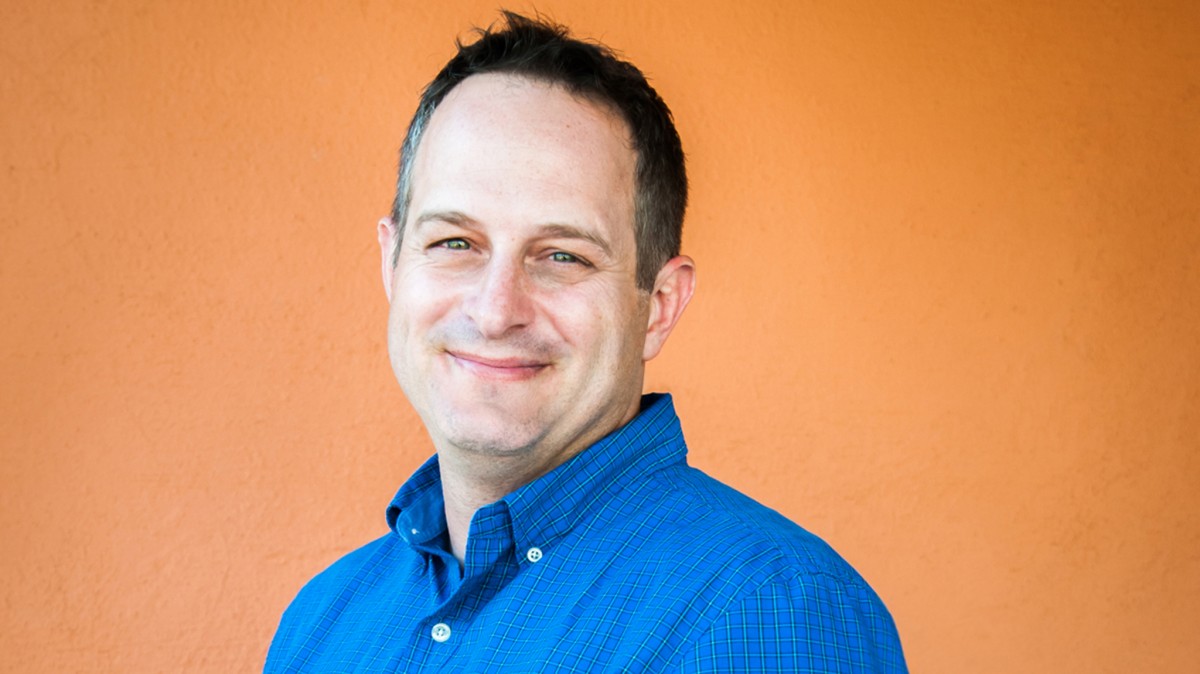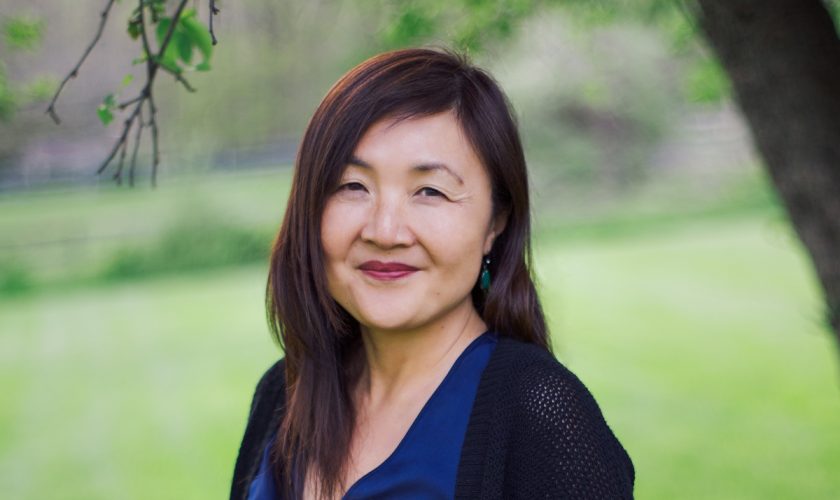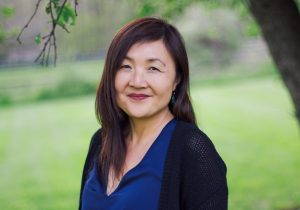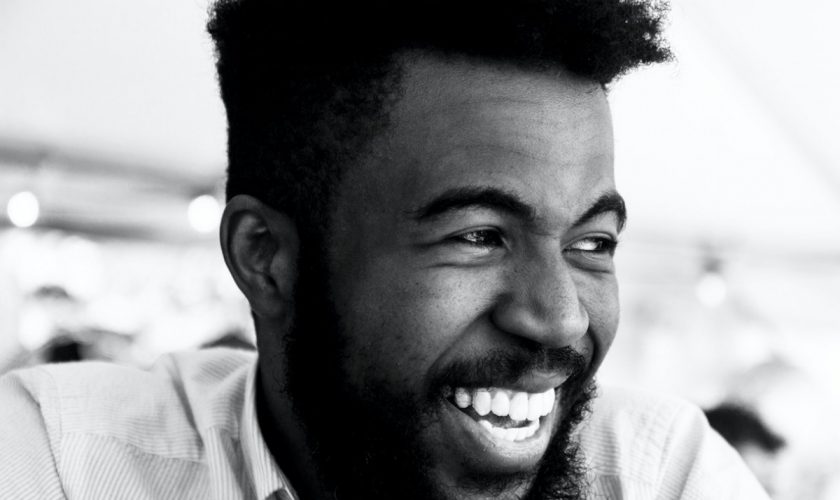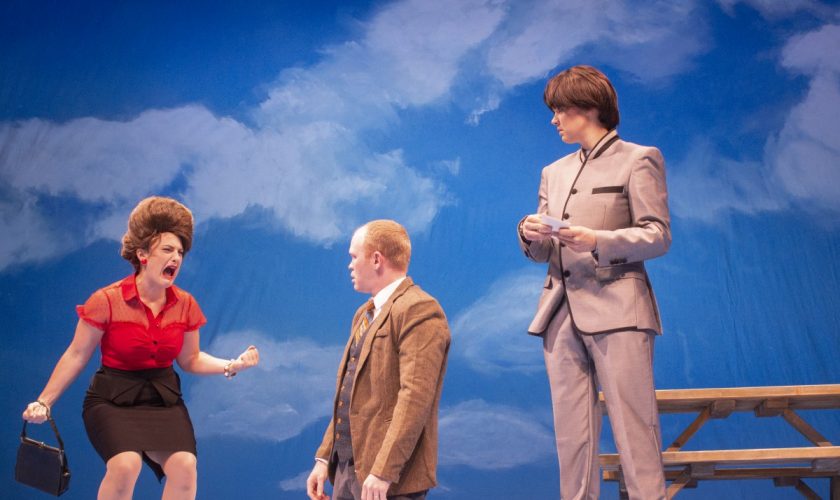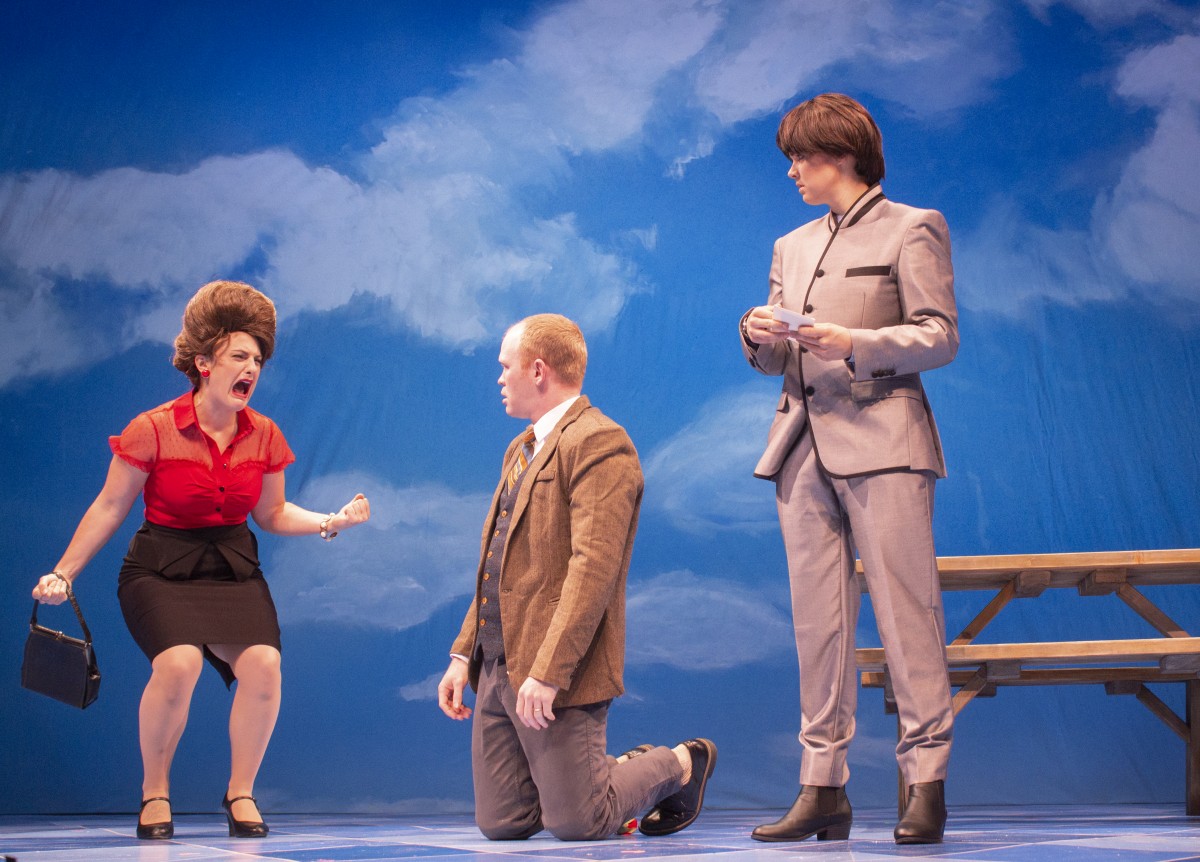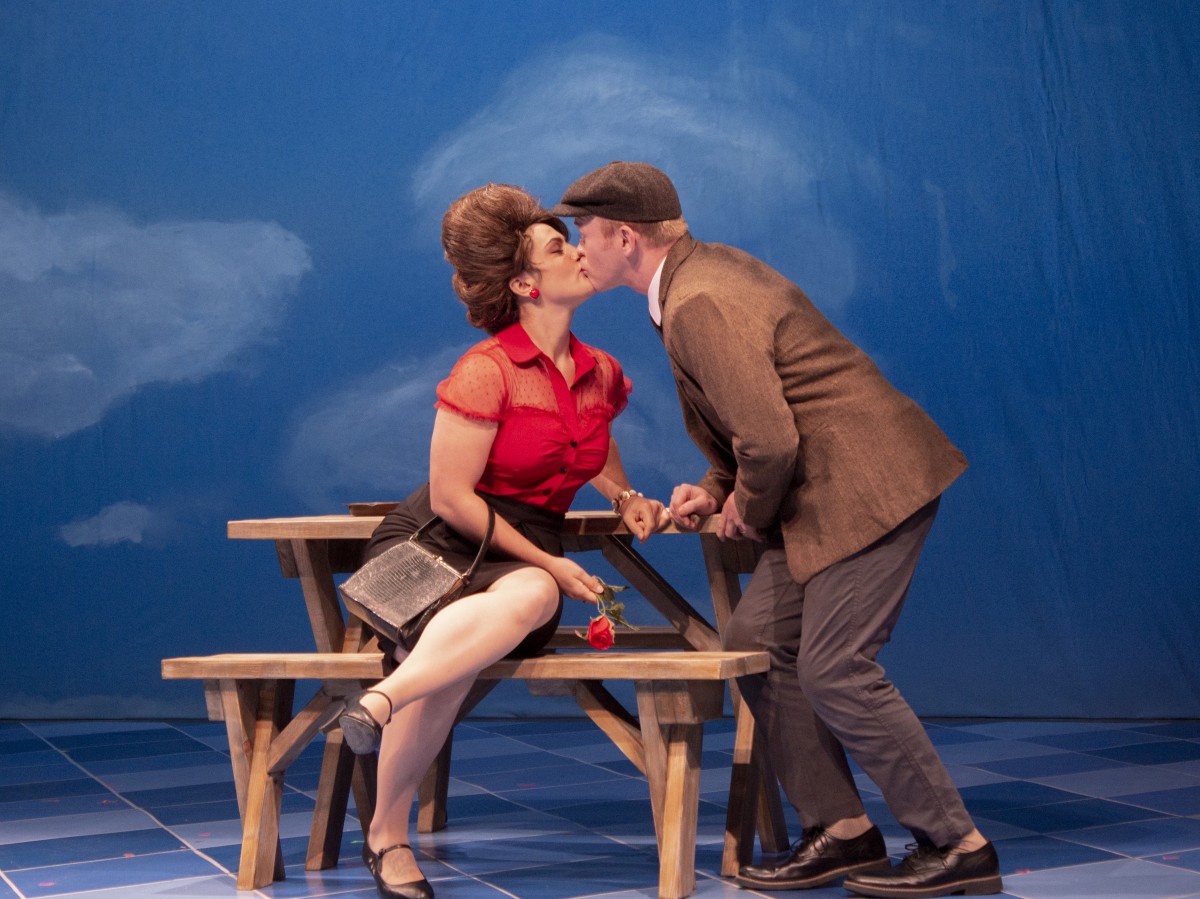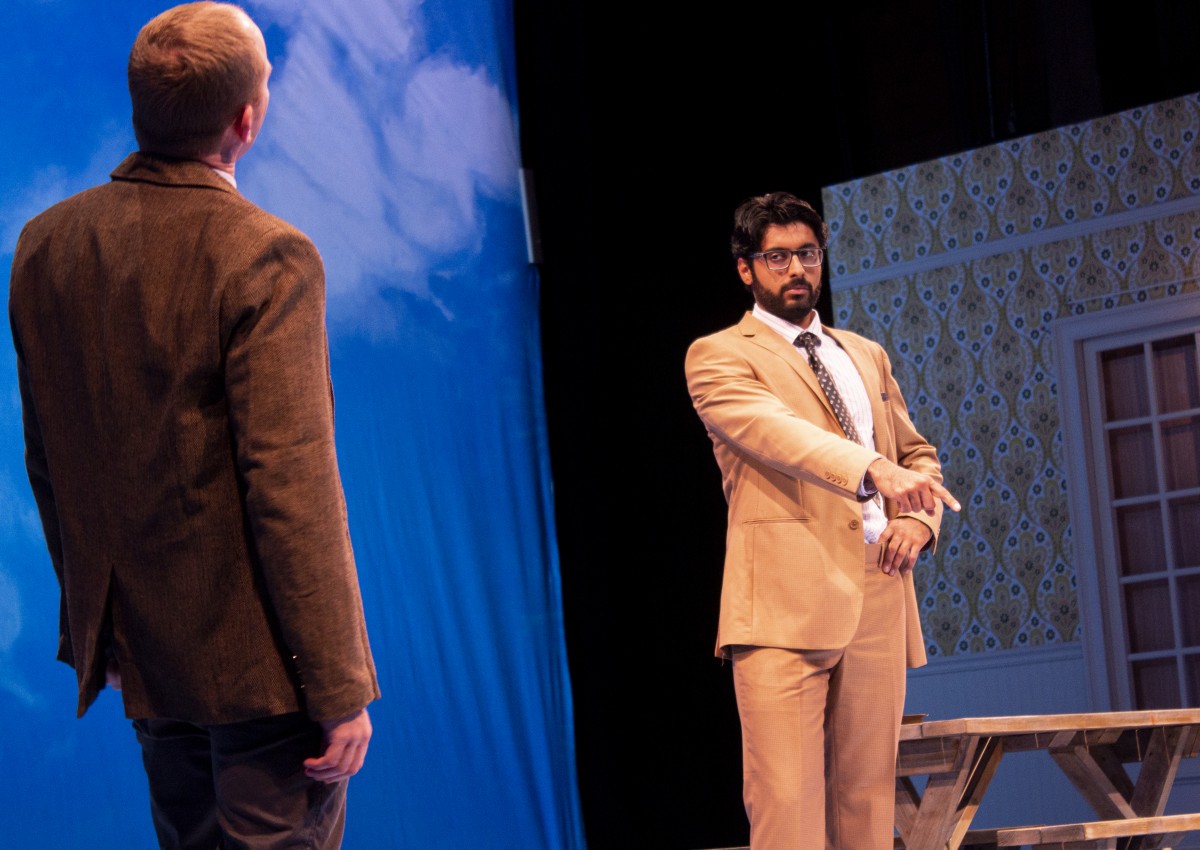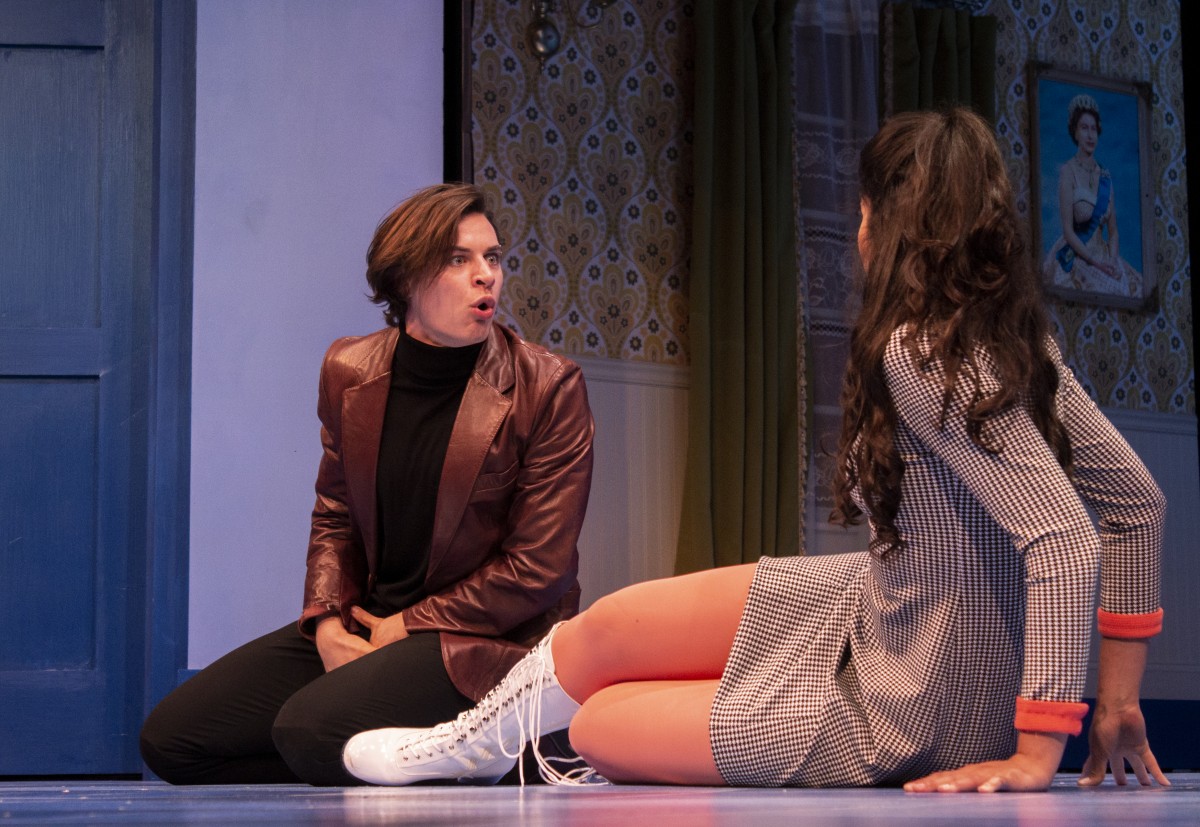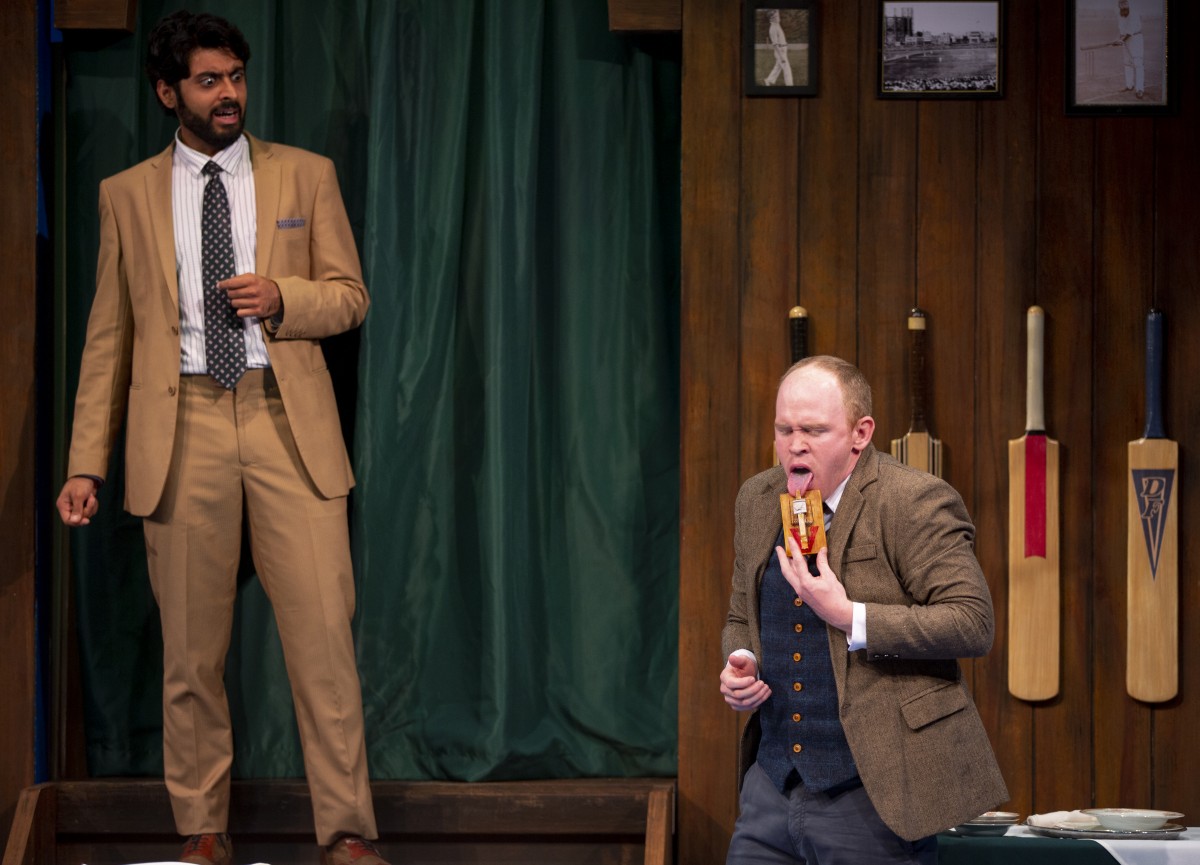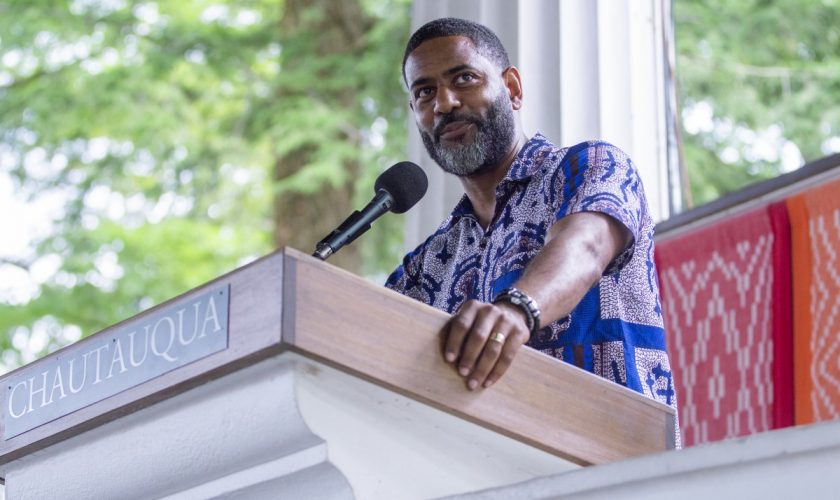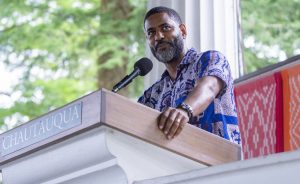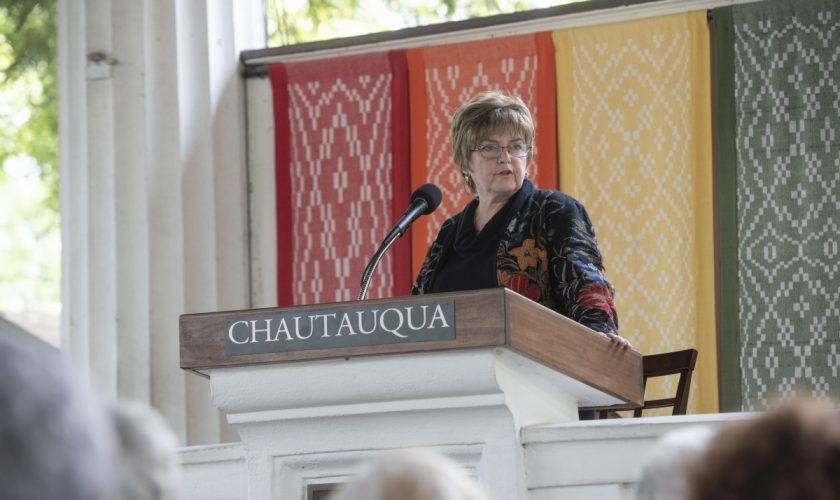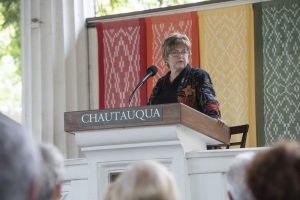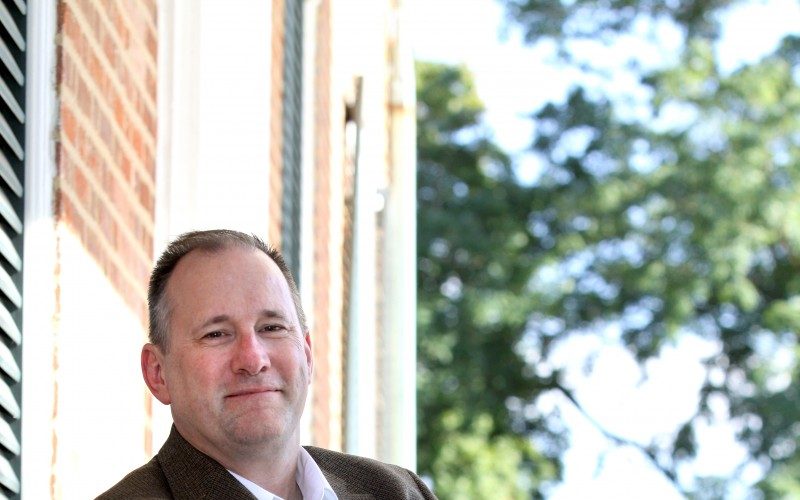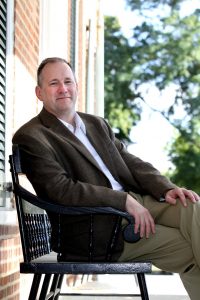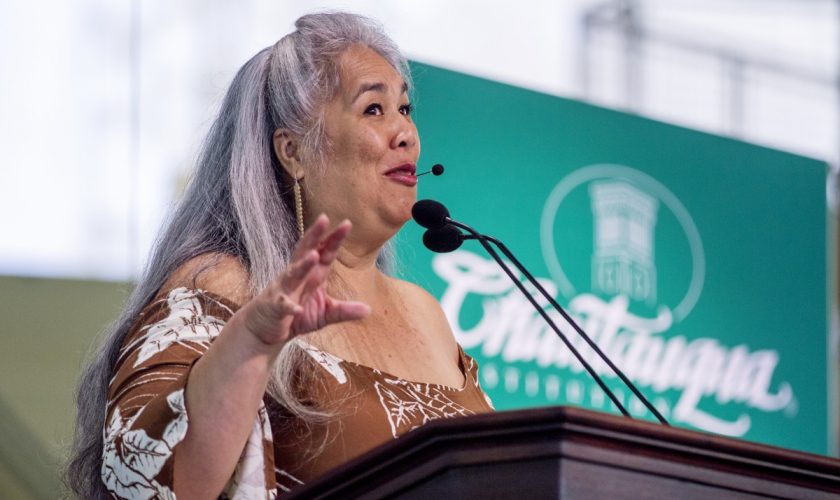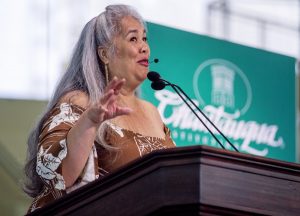Groupers were excited to get down the waterfront on Wednesday, but for a different reason than usual: the annual Club Carnival. The carnival serves as a fundraiser for Old First Night, or as Boys’ and Girls’ Club Assistant Director John Chubb affectionately described it, “Chautauqua’s birthday.” Groups took their time in setting up a slew of different activities for the Groupers, with new ones brought in for the first time this year. Booths for face painting were next to fortune-telling stations, and stations that awarded candy to those who could bounce a ball into cups of water. After putt-putt games, Groupers could run over to the “Kid Car Wash,” to be towed through a makeshift slip-and-slide on a ring buoy by Club staff.
“This is my 11th time,” Grouper Ethan Taliercio exclaimed gleefully as he darted back into line for his personal favorite event, “Peg the Counselor,” a game in which kids get the opportunity to try and hit their counselors with rubber balls.
While the counselors had some good moves, several got out and cycled through the area, ducking and dodging as best they could. Between the music and bouncy slides, Groupers ran from station to station, paying for tickets to enjoy all sorts of activities.
One of the most popular events seemed to be “Rock the Boat,” where Groupers lined up to shoot water balloons at pirate-themed sailboats.
“Where else can a kid do something like this?” Chubb said. “You almost feel like a pirate aiming for someone else’s ship — the water balloons are the cannon balls.”
As activities winded down for a clean-up, Groupers were more than ready for afternoon programs to begin.

